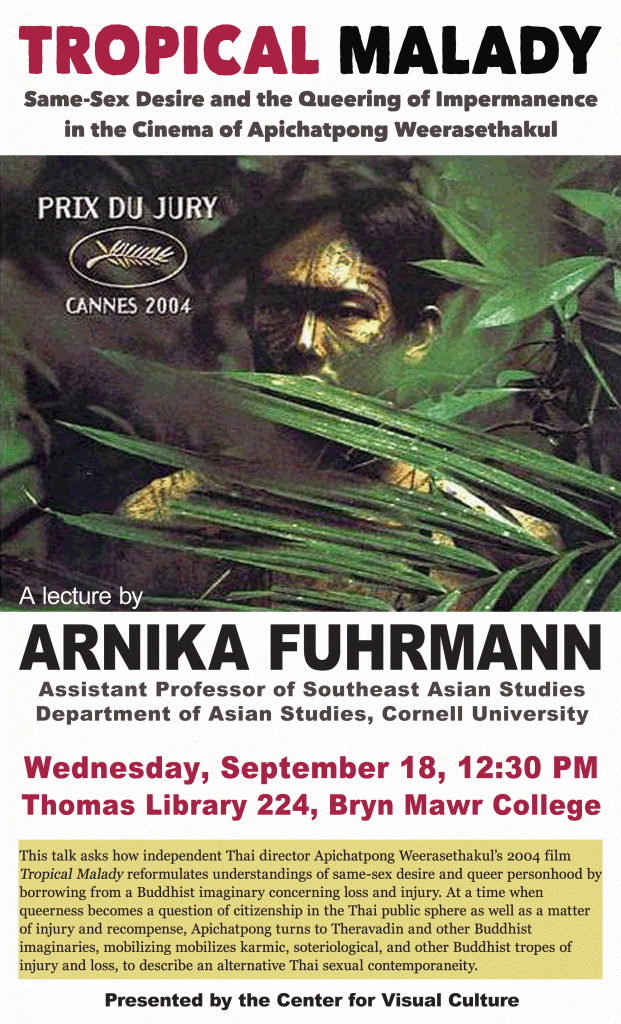Assistant Professor, Southeast Asian Studies, Cornell University
“Tropical Malady: Same-Sex Desire and the Queering of Impermanence in the Cinema of Apichatpong Weerasethakul”
Taking the 2004 film Tropical Malady as its primary case, this talk asks how independent director Apichatpong Weerasethakul’s work reformulates understandings of same-sex desire and queer personhood by borrowing from a Buddhist imaginary concerning loss and injury. At a time when queerness becomes a question of citizenship in the Thai public sphere as well as a matter of injury and recompense, Apichatpong invents a cinematic, affective, and political language that moves the question of non-normative sexuality beyond the frameworks of national reconciliation, legal emendation, and good citizenship. In order to intervene into prescriptions regarding sexual exemplarity, Apichatpong’s cinema borrows from Theravadin and other Buddhist imaginaries to describe an alternative (Thai) sexual contemporaneity. In this context, the director mobilizes karmic, soteriological, and other Buddhist tropes of injury and loss. Manipulating Buddhist pedagogy’s central focus on impermanence—and on the suffering that ensues from the fact of constantly impending loss—this cinema deploys non-orthodox and non-doctrinal Buddhist tropes, stories, and images to move queerness beyond binary notions of liberalism and illiberalism.

